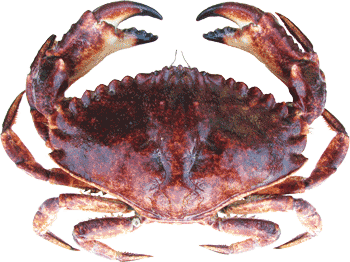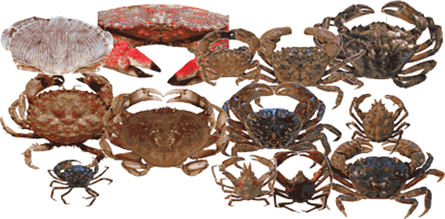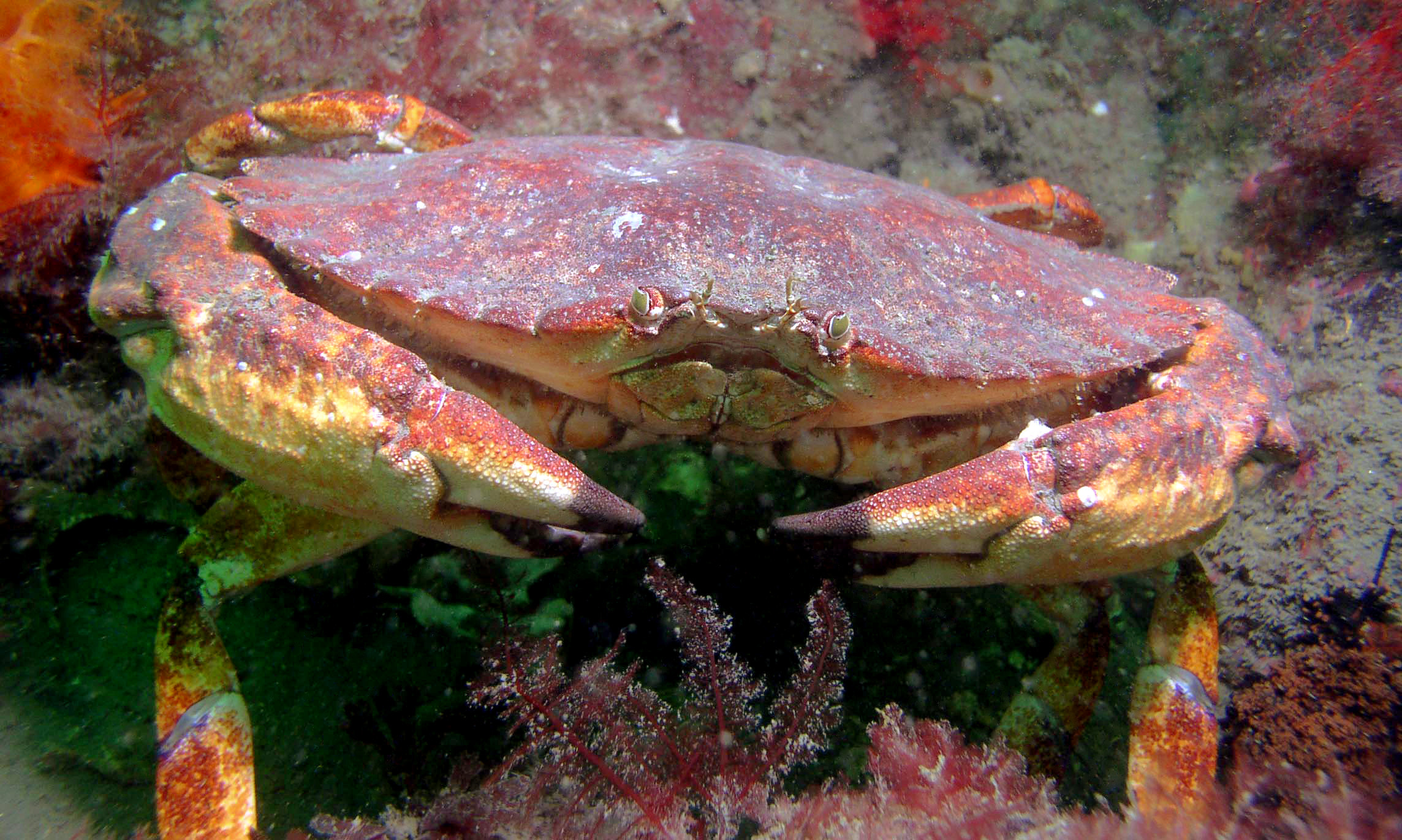Classification
Kingdom: Animal
Phylum: Arthropoda
Subphylum Crustacea
Class: Malacostraca
Order: Decapoda
Family: Cancridae
Genus: Cancer
Species: C. productus
Kingdom: Animalia
The Animal
Kingdom includes multicellular heterotrophic species. Most of the species
included in the Animal Kingdom ingest their food and digest internally.
Animals lack rigid cell walls and body plan consists of specific tissues(minus sponges).
Phylum: Arthropoda
Arthropods represent the most
diverse Phylum on the planet consisting of
insects, crustaceans, scorpions, centipedes, and spiders. All
arthropods have an exoskeleton, segmented body and jointed appendages. There
are far more species of Arthropods than all other taxa combined! Members of
this diverse group cause some of the most devastating diseases on the
planet, Malaria among others, but are also very essential as food and
various medical uses.
I made the Phylogenetic tree below using information from my references. It shows the relatives of the Subphyla Crusteacea.

Class:
Malacostracans
The Class Malocostracans is made up of
about 25,000 species. In all Malacostracans the body plan consists of
3 parts: head, thorax and abdomen although the head and thorax are usually
fused into a cephalothorax. In most species there are 2 pairs of appendages
per segment. Malocostracans are dioecious and most are strictly
carnivorous.
Order: Decapoda
Decapod literally means "ten footed." All members
have ten legs and for most species the front pair of limbs are specialized
as pincers. Decapods consist of crayfish, crabs, lobster, prawns and shrimp.
The red king crab is another member of the Order
Decapoda.
Family: Cancridae
The Family Cancridae is a group made up
of different species of crabs. Most species of the family are found in
temperate waters of the Northern Hemisphere.
Genus:
Cancer
The genus Cancer used to
consists of species of crabs and most large crustaceans. It now consists of
8 extant and 3 extinct species.
Species: C. productus
The species Cancer productus (a.k.a. red
rock crab) can be identified from other species in the genus Cancer
by the distinct black tips of their claws. The other large, common cancer
crab species is C. magister which does not have a dark tip on its claws. C.
antennarius has red spots its underside.
To learn about the habitat of the Red Rock Crab
click here.
To go back to the Home page
click here.
 Red Rock Crab
(Cancer productus)
Red Rock Crab
(Cancer productus)

